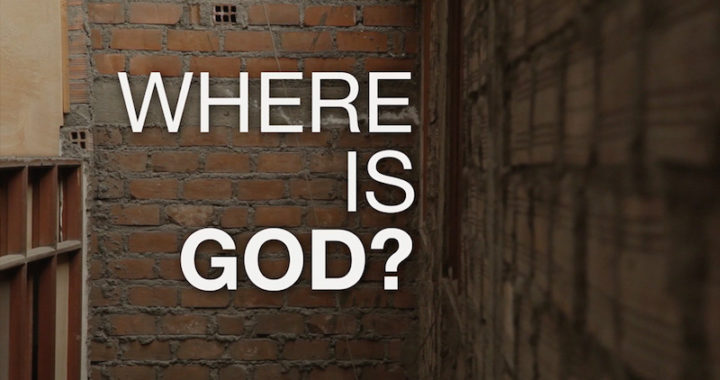Every once in a while we encounter events that interrupt our lives in a manner which causes frustration and makes us wonder why God allows these seemingly unnecessary situations. We expect events to go in a certain way but then something interrupts the norm and we are caused to evaluate the circumstances and find a solution. I recently encountered a situation like this in my own life.
I had bought an international airline ticket at a very good price, about $200-$300 below the normal fair. I was excited to find this great deal. I purchased the ticket online and received an email confirmation. Sometimes there are little glitches when making online purchases but this transaction seemed to go through fine and I was rejoicing over my below market purchase.
A few minutes after the purchase was complete, I noticed an email in my inbox from my credit card company. They were suspicious of my online purchase and marked it as fraudulent. I immediately called my credit card company to let them know that it was really me who had made the purchase but they told me that they had already declined the charges and that I’d have to make the purchase again in order for it to go through. My blood was starting to boil as a result of the actions of the credit card company and I feared that I would not be able to buy this well priced international ticket again.
I immediately called the airline to see if they could simply apply my credit card to the purchase that I had just tried to make. Thankfully, I was able to provide them with a confirmation number and they were willing and able to charge my credit card for the same flight that I had just reserved. I was totally relieved and asked a few other questions while I had the airline representative on the phone.
Since it was an international flight, I asked about my luggage once it arrived t0 the country of my final destination. The representative went through my itinerary with me and explained that my luggage would go all the way through, however, at one particular stop and layover I would need to collect my luggage and find my own transportation from one airport to the other. I was totally shocked that he was informing me of this information as I had earlier confirmed with another airline representative about this transfer from airport to airport and I was told that the plane flew from one airport to the other in this particular city. Now, however, I was being told that I needed to personally get my luggage, leave the airport, find my own transportation to travel the 30-40 miles to the other airport, and continue on my journey. I now understood why my amazing airline deal was so cheap!

Thankfully, the airline from which I bought this ticket allows for a 24-hour no fee cancellation. I quickly cancelled this ticket and bought another which provided connecting flights without having to physically change airports. This new airline ticket cost me a bit more money but it is worth the peace of mind and ease of transport in my upcoming journey.
As I reflect on this story, I now realize that God used the initial credit card glitch to force me to talk with an airline representative and to be properly informed about the flight which I had bought including all of the details. In essence, God was protecting me from a situation in the future which could have been much more stressful and interruptive in my life than simply a declined credit card transaction. God used this inconvenient event in my life to lead me on the right path and provide a better future. We need to learn to see the seemingly frustrating events in life through God’s eyes and not limit them to what we see and understand today. This principle is also a lesson that we find in this week’s Torah Portion.
The Generations of Noah
This week’s Torah Portion is called “נוח” – “No’ach” and includes Genesis chapters six through nine, which provide the full account of the days of Noah and the flood which destroyed the entire world at that time. Noah and his family, along with a remnant of animals and birds, were saved by the provision of God through the wooden ark which Noah built.
We begin this week’s reading with the words “These are the records of the generations of Noah.” (Gen. 6:9) The Hebrew word for “records” in this verse is “תולדות” – “toldot,” and as we saw in last week’s reading, this word literally means “the history of,” “the descendants of,” or “the genealogy of.” The biblical text than goes on to explain the character of Noah, the names of his sons, and the incredible story of God’s judgement on the people of Noah’s generation for their utter wickedness.
Following the detailed account of the flood, the biblical account continues with the record of the generations of Noah’s three sons in Genesis chapters ten and eleven. After the flood, God had commanded Noah and his sons to continue with the mandate first given to Adam and Eve: “Be fruitful and multiply, and fill the earth.” (Gen. 9:1) A plain reading of Genesis chapters ten and eleven reveals that Noah’s sons and the generations to follow certainly obeyed this command of the LORD. Outside of the Tower of Babel incident found in Genesis 11:1-9, Genesis chapters ten and eleven are filled with lists of names of generation after generation who were extremely prolific. This list of generations, which is filled with the birth of sons and daughters, then comes to an abrupt end as chapter eleven draws to a close.
The Generations of Terah
In the last few verses of Genesis chapter eleven we are given the account of one particular family who experienced the untimely death of a loved one and a physical condition of a woman that was a source of shame to her, to her husband, and to both of their families. Towards the end of the genealogy of Shem, we read the following account:
Now these are the records of the generations of Terah. Terah became the father of Abram, Nahor and Haran; and Haran became the father of Lot. Haran died in the presence of his father Terah in the land of his birth, in Ur of the Chaldeans. Abram and Nahor took wives for themselves. The name of Abram’s wife was Sarai; and the name of Nahor’s wife was Milcah, the daughter of Haran, the father of Milcah and Iscah. Sarai was barren; she had no child. Terah took Abram his son, and Lot the son of Haran, his grandson, and Sarai his daughter-in-law, his son Abram’s wife; and they went out together from Ur of the Chaldeans in order to enter the land of Canaan; and they went as far as Haran, and settled there. The days of Terah were two hundred and five years; and Terah died in Haran. – Gen. 11:27-32
Terah’s family started out in a normal fashion with three sons, however, his family then encountered a couple of interruptions in life which causes one to wonder why God would allow such things.
Terah’s son Haran died at a seemingly young age, leaving Haran’s son Lot to the trusted care of his grandfather, Terah. We also learn from these verses that although Abram was married to his wife Sarai, she was barren and unable to have children. Both of these situations are unexpected life interruptions that have no immediate solutions and are a daily source of pain and shame.
We are not given any specific reason why Terah took Abram, Sarai, and Lot away from Ur and made his way to the Land of Canaan. We do know that God spoke to Abraham at some point in his life leading him out of his former place of birth and into the promised Land (Gen. 12:1. Acts 7:2-4), however, the actions of Terah makes one wonder if his decision to lead his family out of Ur was in someway motivated by his desire to leave the place of death and shame in an attempt to give his family a new beginning.

An Orphan & A Barren Woman
Most of my readers are familiar with the life accounts of Abraham, Sarah, and Lot. For those of you who are not familiar with these accounts, please read Genesis chapters 12-25. The disappointment and frustration regarding the loss that both Sarah and Lot experienced during their lives would continue for years and, in respect to Lot, generations to come. At the same time, however, God was using both of their broken situations to bring about His ultimate plan.
We know that God ultimately used Sarah’s barrenness to bring forth the child of promise from whom many blessings would come: including the nation of Israel and the Messiah (Gen. 12:1-3. 17:15-16). Sarah experienced relief from her pain and shame through the birth of her son Isaac, which occurred 25 years after the promise first given to Abraham (Gen. 21:6-7). Lot’s broken life, however, seemed to be characterized by one bad decision after another, one tragedy after another, and future generations that were opposed to God’s plans and God’s people.
In a twisted and morally depraved manner, Lot became the father of two nations, Moab and Ammon (Gen. 19:30-38). Both of these nations ultimately became enemies of the nation of Israel and were cursed of the LORD, being excluded from the nation of Israel (Deut. 23:3-6). The descendants of Lot seemed to continually carry with them the fatherless state of their forefather. Moab and Ammon were to remain as separate nations, being cut off from the blessing of Almighty God that flowed through the descendants of Abraham and the nation of Israel.
Lot did not live to see the manner in which God would ultimately take his broken descendants and graft them into His chosen people. Nearly one thousand years after the days of Lot, God used a famine in the Land of Judah to bring a Jewish family into the region of Moab. Through a tragic turn of events, God caused one Moabite woman to possess an unshakable faith in the God of Abraham, Isaac, and Jacob which brought her to the city of Bethlehem of Judea. Ruth the Moabitess then became the wife of Boaz the Bethlehemite and she was formerly grafted into the people of Judah. Ruth gave birth to a son, Obed, and ultimately became the grandmother of King David and played an integral part in the line of the Messiah (Ruth 4:13-22).

Trusting God in the Midst of Uncertainty
The lives of Sarah and Lot should give each one of us a renewed hope and a reassurance in the God of Abraham, Isaac, and Jacob. Whatever we may face along the journey of life, we need to continually trust God and wait on Him for the final outcomes. Much of life is routine and goes on as it should, however, we all experience bumps along the way which make us wonder why God allows such things to enter our path. We may not immediately understand why certain things occur in our lives. We may never see God’s purpose for certain things during our lifetime. This is why the Scriptures describe faith as, “…the assurance of things hoped for, the conviction of things not seen.” (Hebrews 11:1)
Shabbat Shalom!
If you enjoyed reading this article, share it today with friends! We also invite you to sign up for our weekly Torah Portion commentary on the sidebar to the right.
Help keep our weekly commentaries free and available to all. Click here to donate today:
Torah Portion: Gen. 6:9 – Gen. 11:32
Haftara for Passover: Isaiah 54:1 – Isaiah 55:5
Return to Torah Portion Homepage
Copyright Jewels of Judaism. All rights reserved 2018



Good article for me today as I am encountering some trials with neighbors lately. I have to keep reminding myself that is the Lord’s problem. I can depend on Him to work it out for my good.
Amen, I’m glad you’ve found a practical application for this truth. God bless you Rosa!
Suffering many times is caused to bring someone to teshuva, this us something we all must look deep in ourselves, lack of emuna, so we must soul searching is so important,
Frank, thank you for your thoughts but as we see in the life of Abraham and Sarah, sometimes God uses trials in our life for His greater good that we can’t always see. And this is as a result of nothing that we have done.